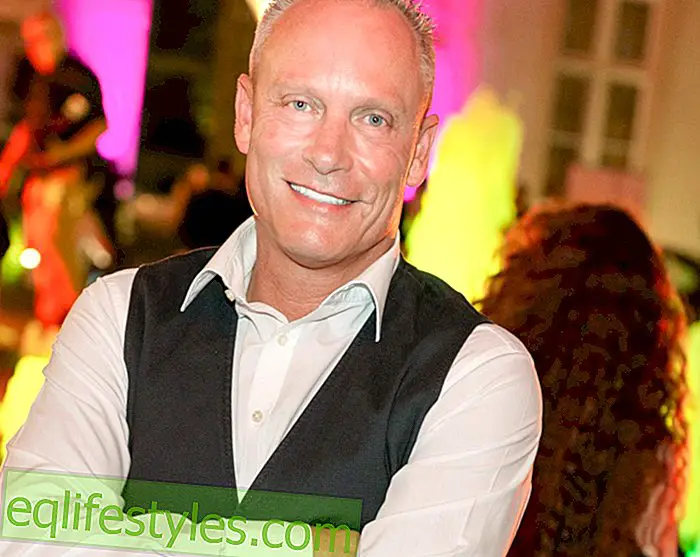
Photo: RichVintage / iStock
The success of the brave
Who dares Wins! But what to do if you do not dare? Quite simple: learn it, says fear researcher Prof. Dr. med. Bandelow. How to awaken the brave heroine and become bolder, you will learn here - only courage!
It starts with the fact that we can not get rid of a caller. Because we do not dare to tell him that we do not want to participate in the survey. Or we lack the guts to quit the job, which is safe, but no longer fun for us. What remains is a sense of dissatisfaction - and the silent self-reproach of being a coward.
And yet they are there, the brave! People who dare everything and seem to be afraid of nothing. What is your secret?
We have with the anxiety researcher Prof. Dr. med. Borwin Bandelow spoke from the University of Göttingen - and received stunning answers. Everyone can program their brains for courage, he says.
It takes some practice, but then we dare to overcome fears. Courageously, we escape the golden cage, our comfort zone - and find freedom, new vitality and happiness.
"Everyone can program their brains for courage": Interview with fear researcher Prof. Dr. med. Borwin Bandelov
From the fearful to the hero, by reversing his brain - sounds great! But how do you do that? And does it really work for every human being?
bella: Mr. Bandelow, are we all born timid rabbits?
Borwin Bandelow: In a sense, yes. Because fear is an innate basic emotion. Courage - trusting oneself in daring to do something - is, on the other hand, a skill that we first have to learn. Fear and courage are always the two sides of a coin.
Is fear always something bad?
Not at all. It serves to protect us from danger, so it can be vital. And we also need the fear to move on. She is an engine and challenges us. The fear of not being good is a strong motivation to get active. For example, when people become creative artists or successful business people, their conscious and unconscious fears have contributed a great deal.
But there are people who are more courageous than others - is it because of their genes?
It used to be thought that an overprotective mother is to blame if we later go through life fearfully. Today we know that there are many influences that determine how brave we become: apart from parents, role models such as siblings, friends, teachers and the whole environment - one child is raised by the whole village.
What else is important to be brave?
A good self-esteem and self-confidence. And that can be increased by mental training. Ask yourself several times a day: What can I do? What am I worth? Neurologists found out: The more positive the answers that the brain stores, the more often it gives us the signal: you need not be afraid, you can do a lot and be adorable.
How can you brainstorm your brains?
Through constant exercise. The crux of the matter: Our brain needs only a few bad experiences to fill a situation with the feeling of fear, but many positive ones to quench this fear. Getting through intimidating situations is not enough. You have to repeat it x times, so that new experiences burn into the brain. Only then does the anxiety center, the amygdala, stop this overreaction.
For that you have to overcome fears so first. How do you do that?
Every day I recommend a test of courage, which provides new connections of nerve cells. If someone is upset about making a speech, he should first give a speech in front of the partner, one in front of friends, then one before colleagues. The more courage tests we complete, the greater the amount of data stored in our brains. It creates a kind of courage depot there.
And what if suddenly the fear attacks you?
They endure. It is important to get through the situation - in case of doubt it is just a matter of waiting until the symptoms of anxiety, such as palpitations or damp hands, pass by themselves, ie after about 30 minutes. If we escape from the situation before, the brain stores the following connection: Fear - Run Away - Failure. If we stop the fear, the combination is: fear - remained steadfast - success. This must be practiced, practiced, practiced - until it is stored in the brain as a routine act.
Do you know another Psychotrick that makes you brave?
Fake it till you make it - pretend that you have everything under control, even when your heart is racing. Worlds are between self-perception and external perception. Others do not see our inhibitions, but only the smile we hide behind them. And react positively. Another pound for the courage depot.










